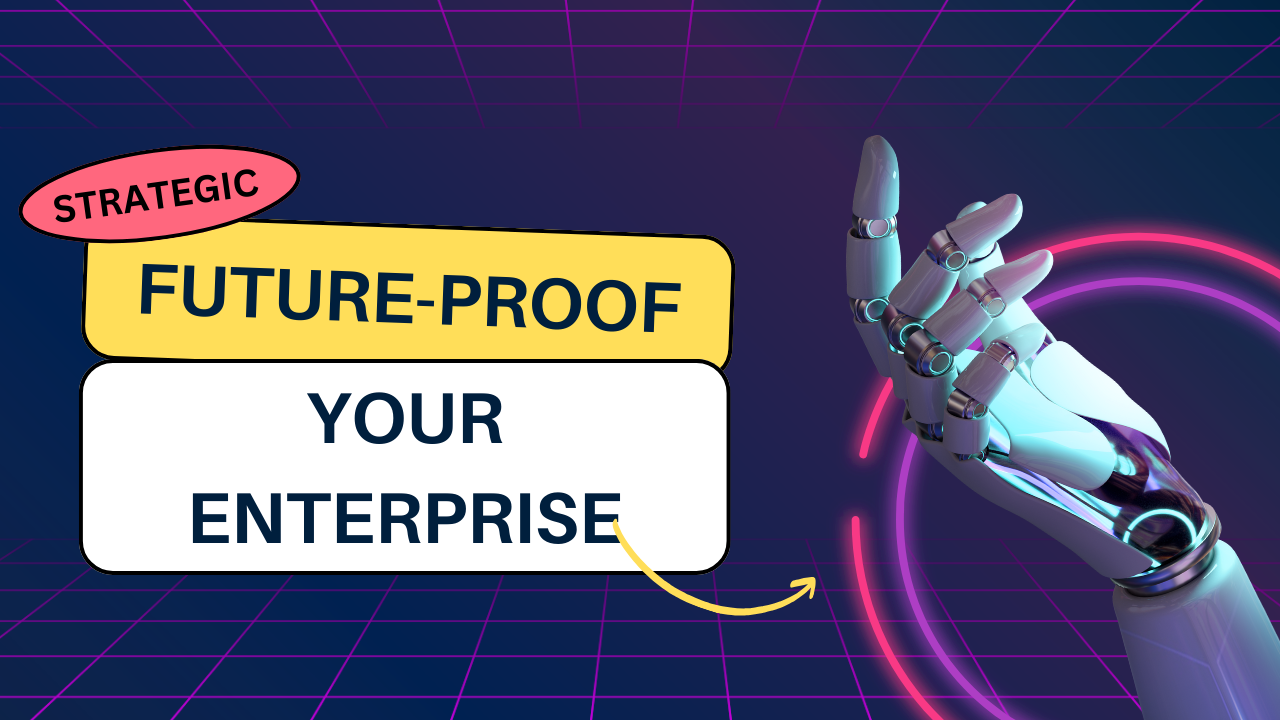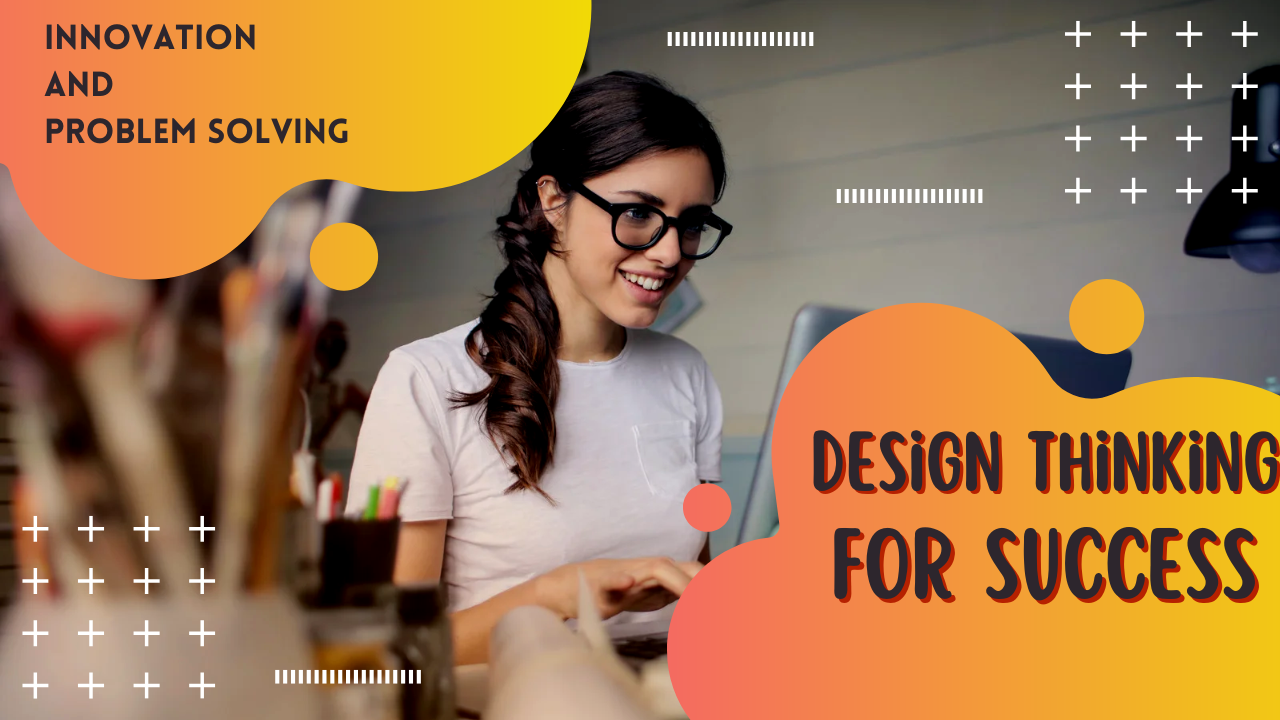In an era of constant technological advancement, economic shifts, and global challenges, enterprises are increasingly facing pressure to adapt or risk falling behind. As businesses evolve, their ability to stay resilient and adaptable becomes critical in maintaining competitiveness. This concept, often referred to as “future-proofing,” is about preparing your enterprise for the uncertainties of the future while ensuring its sustainability, growth, and relevance. Future-proofing requires a multifaceted strategy that incorporates innovation, adaptability, and a forward-thinking approach to various aspects of business operations.
Here’s a roadmap to help enterprises future-proof their operations:
1. Embrace Technological Transformation
Technology is a key driver of change in virtually every industry. To future-proof your enterprise, embracing technological innovations is paramount. The rapid pace of technological advancement means that businesses that fail to adopt new tools risk becoming obsolete. Whether it’s automation, artificial intelligence (AI), machine learning, blockchain, or cloud computing, integrating the right technologies can enhance efficiency, streamline processes, and improve customer experiences.
- Adopt Automation and AI: Automation has already transformed industries by improving efficiency and reducing human error. AI can offer predictive analytics, automate customer support, and even optimize supply chain management. Investing in AI and automation will allow your business to perform complex tasks faster and more accurately, which can give you a competitive edge.
- Leverage Cloud Computing: Cloud technology enables businesses to scale resources as needed without the constraints of traditional IT infrastructure. By moving to the cloud, enterprises can also improve collaboration, enhance data security, and reduce operational costs. The flexibility of cloud services ensures that businesses can adapt to changing requirements with ease.
- Explore Blockchain and Security Advancements: For enterprises handling sensitive data or digital transactions, implementing blockchain can enhance transparency and security. Blockchain’s distributed ledger technology can significantly reduce fraud, enhance traceability, and increase trust in digital transactions.
2. Foster Innovation and Agility
The key to staying relevant in an ever-evolving marketplace is fostering a culture of innovation and agility. The business environment is highly unpredictable, with changing consumer preferences, economic fluctuations, and new competitors entering the market. Therefore, the ability to innovate and pivot quickly is essential to staying ahead.
- Invest in Research and Development (R&D): Encourage continuous research and development efforts within your organization. By dedicating resources to R&D, you create a pipeline of new products, services, or business models that can keep your enterprise at the forefront of the market.
- Adopt an Agile Methodology: The traditional “waterfall” project management approach is becoming obsolete in today’s fast-moving world. Agile methodologies, including Scrum and Kanban, allow businesses to adapt quickly to change by breaking down complex tasks into manageable sprints. This approach can help businesses accelerate time-to-market, enhance team collaboration, and respond faster to customer feedback.
- Cultivate a Growth Mindset: Leaders should encourage a growth mindset throughout the organization. Employees should feel empowered to experiment, take calculated risks, and innovate without the fear of failure. A growth-oriented culture also helps in talent retention, as employees are more likely to stay at companies that foster their personal and professional development.
3. Develop a Data-Driven Culture
In today’s digital age, data is a vital resource that can drive better decision-making, enhance customer experiences, and improve operational efficiency. To future-proof your enterprise, you need to develop a robust data strategy.
- Implement Data Analytics and Business Intelligence (BI): Businesses can leverage data analytics tools and BI software to gain insights into consumer behavior, industry trends, and operational inefficiencies. By making data-driven decisions, enterprises can reduce risks, identify growth opportunities, and deliver targeted solutions to their customers.
- Prioritize Data Security and Privacy: With data becoming a central part of business operations, protecting that data is crucial. Enterprises must ensure they comply with data protection regulations like GDPR, HIPAA, or CCPA. Investing in robust cybersecurity frameworks will prevent potential breaches that can damage an organization’s reputation and incur costly fines.
- Utilize Predictive Analytics: Predictive analytics allows businesses to forecast trends, consumer behavior, and market shifts. With this technology, enterprises can anticipate challenges and opportunities before they arise, making proactive decisions to stay ahead of the competition.
4. Prioritize Customer-Centric Strategies
In an age of heightened customer expectations, future-proofing your enterprise involves creating strategies that prioritize customer needs and deliver exceptional experiences.
- Personalize Customer Interactions: Customers expect personalized experiences, whether through tailored marketing campaigns or individualized products and services. By leveraging data and AI-driven insights, enterprises can create customized offers, improve user interfaces, and develop stronger connections with their customers.
- Leverage Omnichannel Strategies: In today’s multichannel world, businesses must ensure seamless experiences for customers across all touchpoints. Whether through mobile apps, social media, in-store experiences, or websites, integrating these channels creates a consistent brand experience, which is vital for retaining customers and gaining new ones.
- Engage in Real-Time Communication: Enterprises must be available to their customers when needed, and this means investing in real-time communication tools such as live chat, chatbots, and social media engagement. Real-time communication not only improves customer service but also allows businesses to act on customer feedback more quickly.
5. Strengthen Resilience Through Risk Management
Businesses must be able to withstand disruptions, whether from economic shifts, natural disasters, or unforeseen crises such as a pandemic. Future-proofing involves creating resilient systems that can bounce back from such challenges.
- Develop a Business Continuity Plan (BCP): A robust BCP outlines strategies to ensure that your business can continue operating in the face of disruptions. This includes data backup plans, remote work capabilities, and strategies to maintain operations during a crisis.
- Diversify Revenue Streams: Businesses that rely on a single revenue source are more vulnerable to economic shifts. Diversifying revenue streams by introducing new products, services, or markets can help buffer your business against unpredictable economic conditions.
- Manage Financial Health: Financial resilience is critical. Ensure that your business maintains a healthy cash flow, has contingency funds, and can weather downturns without going into debt. Building a strong financial base will help absorb shocks and keep your enterprise afloat during difficult times.
6. Invest in Sustainable Practices
Sustainability is no longer a buzzword—it’s a business imperative. As environmental concerns grow and regulations tighten, enterprises need to adopt sustainable practices that benefit both the planet and their bottom line.
- Reduce Environmental Impact: Adopting green technologies, reducing waste, and increasing energy efficiency are key components of future-proofing. Businesses that embrace sustainability can not only reduce costs but also appeal to environmentally conscious consumers.
- Commit to Ethical Business Practices: Enterprises should also adopt ethical business practices, such as ensuring fair labor practices, promoting diversity and inclusion, and operating transparently. As consumers and stakeholders increasingly prioritize ethics, businesses that align with these values will enjoy a competitive advantage.
- Focus on Long-Term Value: Sustainability isn’t just about being environmentally friendly—it’s about ensuring long-term value creation. This includes engaging in socially responsible investing (SRI), supporting local communities, and engaging in activities that contribute to societal well-being.
7. Invest in Talent Development
The people within an organization are its greatest asset. Future-proofing your enterprise involves investing in the continuous development of your workforce.
- Focus on Employee Upskilling: The future of work will be shaped by emerging technologies and changing skill demands. Offering continuous learning and development programs ensures that your employees can adapt to new technologies and remain productive.
- Foster a Collaborative Work Environment: A collaborative culture is key to innovation. Encourage teamwork, knowledge sharing, and cross-functional collaboration to tackle complex challenges and explore new ideas.
- Prioritize Employee Well-being: Employee satisfaction directly impacts productivity and retention. By investing in a healthy work-life balance, mental health support, and creating an inclusive environment, you ensure that your workforce remains engaged and motivated to contribute to the enterprise’s success.
Conclusion
Future-proofing your enterprise is not about predicting the future with certainty, but about building a flexible and resilient organization that can adapt to whatever challenges lie ahead. By embracing technology, fostering innovation, prioritizing customer needs, strengthening risk management, and investing in sustainability and talent development, businesses can position themselves for long-term success. The companies that will thrive in the future are those that continuously evolve, adapt to change, and invest in their ability to respond to whatever the future brings.










